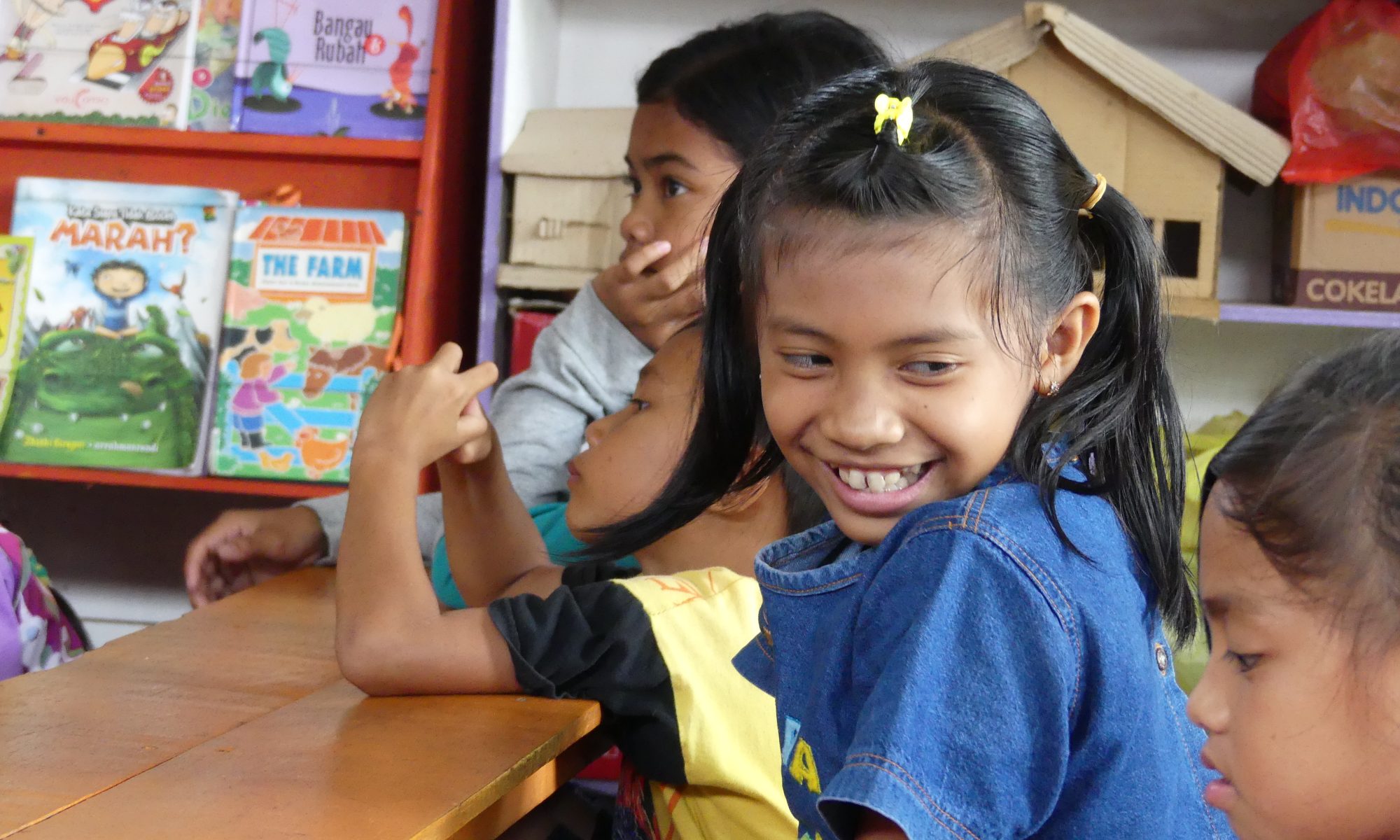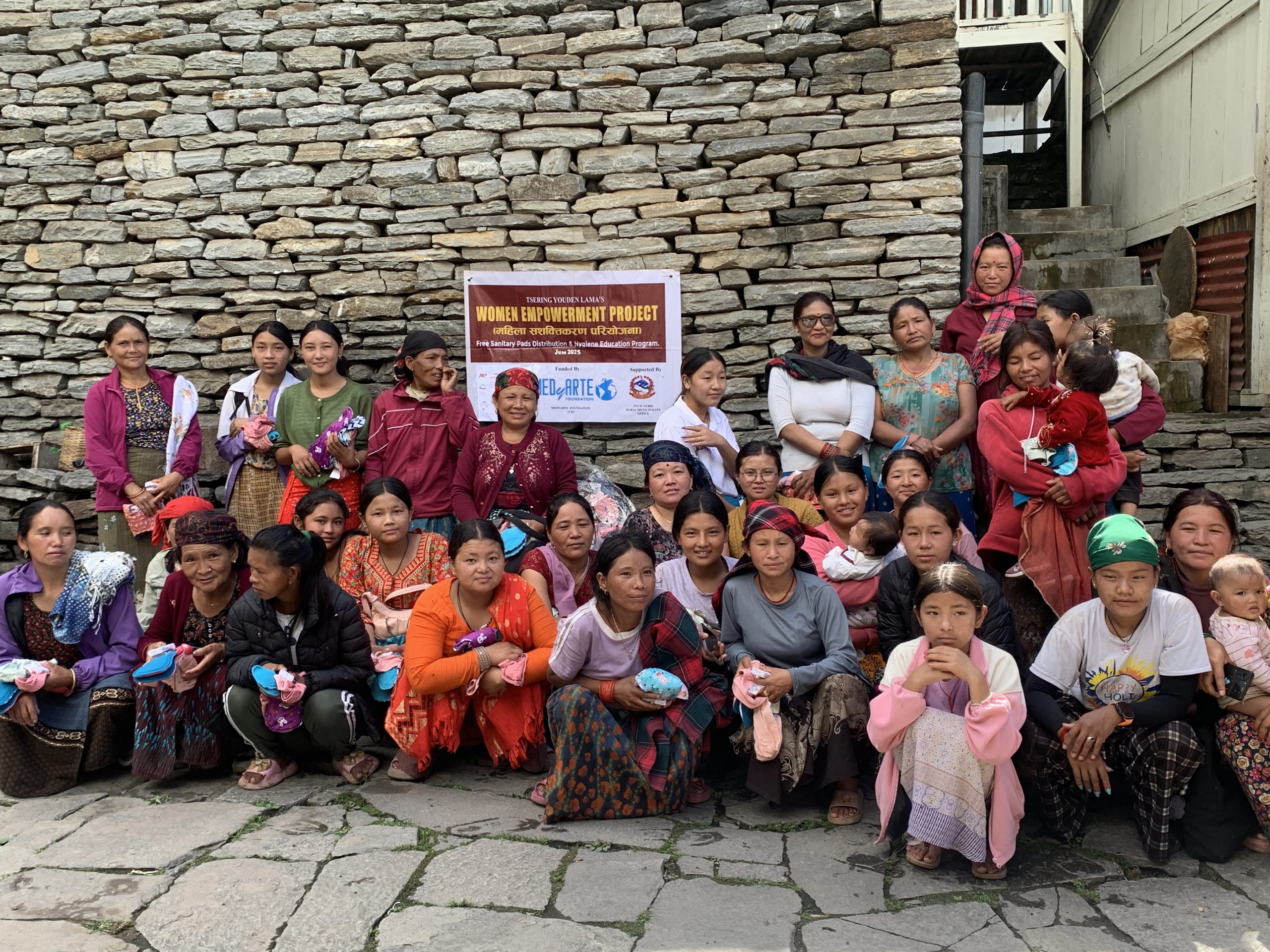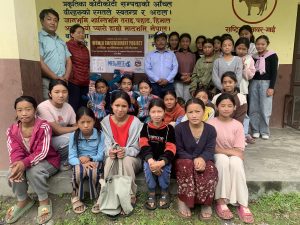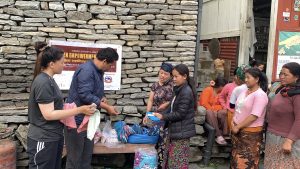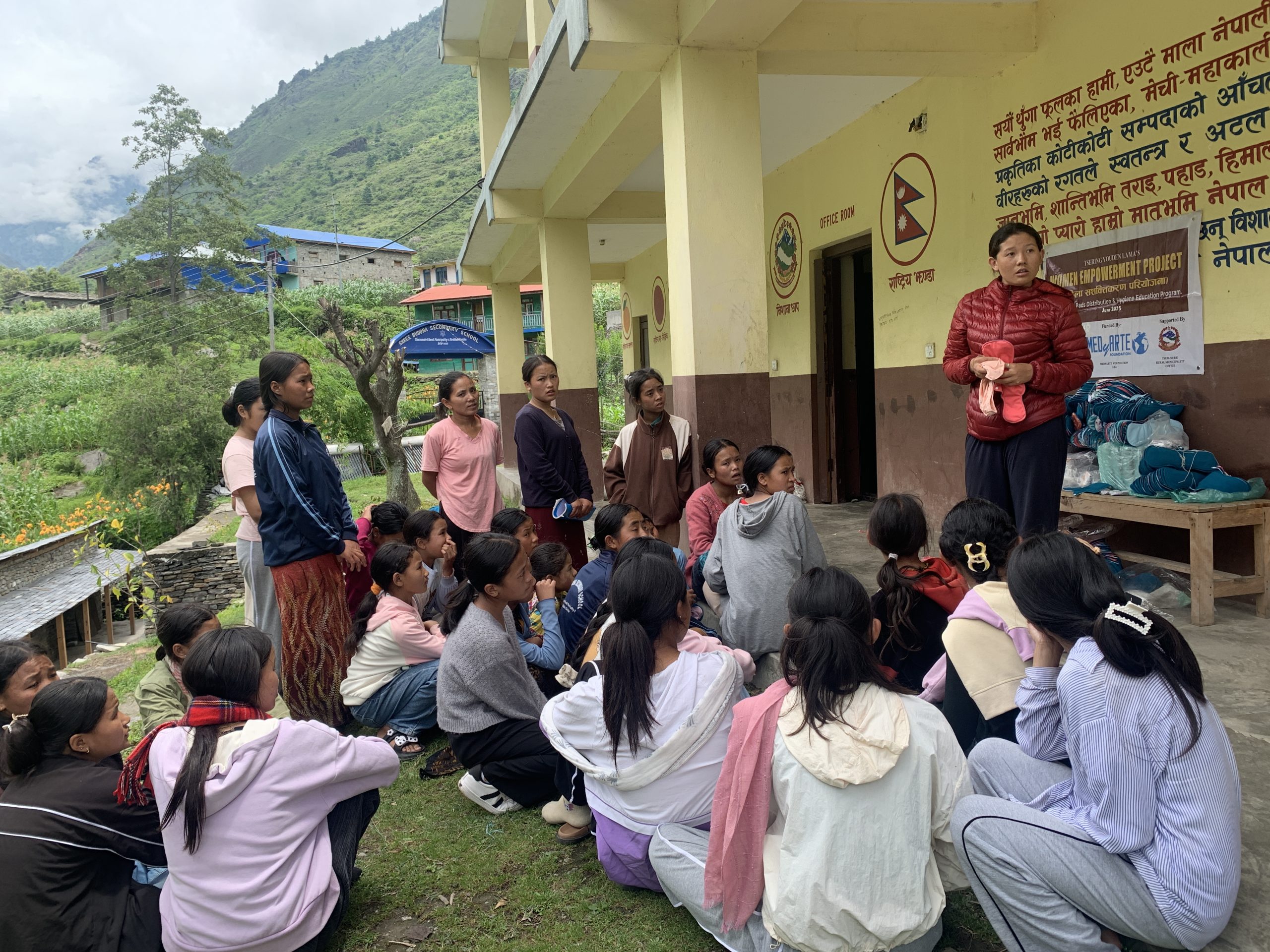The Pad Project 2025: Supporting Women in Remote Nepal
The Pad Project, which supplies reusable sanitary products to remote villages in Nepal’s Gorkha region, has continued throughout this year. Over the past two years, all women of childbearing age in six villages have received these essential supplies—items that will hopefully support them for several years to come.
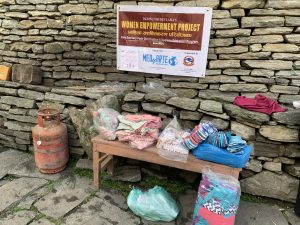 This year, however, distribution efforts were significantly disrupted by the monsoon season. Heavy rains damaged access roads to several planned locations, rendering them unreachable. Thanks to the excellent organisational skills of our Nepali partner, alternative destinations were quickly identified. As a result, we successfully delivered sanitary pads to two schools and three additional villages.
This year, however, distribution efforts were significantly disrupted by the monsoon season. Heavy rains damaged access roads to several planned locations, rendering them unreachable. Thanks to the excellent organisational skills of our Nepali partner, alternative destinations were quickly identified. As a result, we successfully delivered sanitary pads to two schools and three additional villages.
In addition to distribution, we conducted educational sessions focused on personal hygiene, women’s health, and contraception. These workshops were well received, with community members, village leaders, and school heads expressing deep gratitude for the support provided.
Interviews with women already using the sanitary products revealed a high level of satisfaction. Their feedback affirmed the value of this initiative and highlighted the often-overlooked challenges women in these communities face in managing their menstrual health—a basic but vital aspect of daily life.
We are proud and humbled to be able to support an increasing number of women through this project. We hope our continued efforts will make a lasting difference in the quality of life and health of these communities.
The Pad Project, Nepal Ghorka Region

Rural Nepal suffers with significant deprivation and lack of basic provisions such as healthcare, sanitation, adequate nutrition and education. The majority of the population in the Himalayan regions works as subsistence farmers in the low yielding high altitude fields. Despite long hours of toil, the crops are not sufficient to sustain their families and certainly not enough to exchange the produce for more luxury items such as soap or other sanitary products. This problem affects negatively everyone but especially the female part of the population which struggles to keep clean during menstruation.
In Nepal, there is a strong taboo attached to menstruation, based around the persistent idea—rooted in religion—that menstruation “pollutes.” The practice of chhaupadi (“seclusion”) during a woman’s menstrual cycle persists despite nominal illegality. The practice involves the sequestering of women in sheds separate from their house. It is believed they will otherwise bring their family bad luck, or ill health. The tradition begins with an adolescent girl’s first menstrual cycle, during which she remains in the shed for up to fourteen days; afterwards, she must spend the duration of each monthly period in the shed, until she reaches menopause. Due to lack of sanitary items women either do not use anything at all or dirty rags during menstruation. This commonly can lead to infections or even deaths.
Our project in the Ghorka region of Nepal is aiming to tackle all of these issues. We are planning to provide reusable sanitary wear to all women living in 6 villages at high altitude: Bhi, Serang, Gyaul, Chak, Kwak and Prok.
We are also going to organise educational meetings in all of these villages, with the support of the local nurses, to raise health awareness, provide information about the hygiene and supply soap to aid achieving this particular goal; to teach about the physiology of the menstrual cycle and contraception as well as aiming to abolish deeply rooted taboos related to menstruation.
This is an incredibly important intervention which hopefully will start a new chapter in the lives of many women in the region. We are looking forward to following the progress and outcomes over the forthcoming years.
